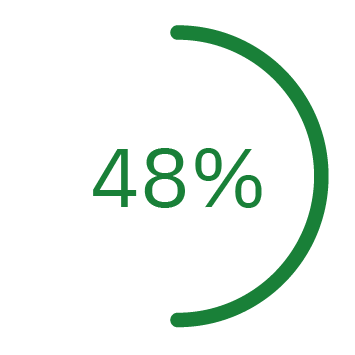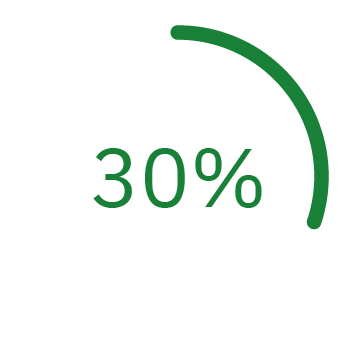“Our biggest challenge in this new century is to take an idea that seems abstract – sustainable development – and turn it into a reality for all the world's people,” said Kofi Annan, the Secretary General of the United Nations, at the beginning of this millennium. Allow us to outline the current market trends here and how we, as IBM, can help you to harness these and even stay ahead of time.
The future is now
92% of CEOs believe that the integration of sustainability is important to the future success of their businesses.

Excecutives state climate change is a “significant risk factor”
SRI Investments
In total, EMEA already invested USD14 trillion in SRI assets. Within the banking industry, companies like Atmos and Aspiration let you manage your everyday finances in an environmentally-friendly way. By refusing to invest in the worst corporations doing the most harm to the planet and other people, investors are helping to drive a change.

Enhanced reporting needs to be a priority (over changing strategy, practices)
Customer behavior
90% of citizens say it’s important for businesses to sign up to the SDGs, while 71% of businesses say they are already planning how they will respond to the SDGs. 75% of people in Europe prefer sustainably managed companies as customers and as employees.

Banks executives are “extremely concerned” about climate change
ESG meets SMEs
SMEs are increasingly providing information regarding environment, social and governance at the request of investors, ESG ratings providers, credit rating agencies, and other motivated stakeholders (e.g. climate or human rights NGOs).
Banking imperatives
Banks must adopt a hypothesis driven, accelerated approach to identify relevant
responses to the massive challenges around sustainability
Key market imperatives
Growing risk of climate-related extreme weather threatens major disruption to supply chains, business models and economies
Consumers will increasingly demand that banks align
with their values on sustainability
Investors increasingly demand reporting and action on sustainability, punishing laggards with shareholder action and threat of divestment
Governments are globally ramping up mandatory requirements around environmental reporting and management
What banks
must do
Build resiliency and reduce financial losses; calculate
and understand the financial impact of climate change related risks
Develop new green products in financing and investment and enhance customer involvement
Transform their operating model to ensure sustainability is scaled
throughout the organization
Leverage sustainability reporting to control performance and support market communication
What if banks could…
Turn data insights into clear priority areas for rebalancing the bank’s balance sheet based on sustainable portfolio targets?
Leverage state-of-the-art platforms and AI solutions to gain more insight into sustainability needs of clients and investors?
Set up a sustainability COE to ensure focus and commitment backed by metrics and control tower for progress monitoring?
Establish a consistent way of measuring and capturing relevant data with automating reports creating transparency and efficiency?
Way forward
According to envizi, most organizations feel their ESG reporting is “just getting started”.
ESG reporting maturity level

Let's talk!
Executive Partner Banking
Regulatory, Risk, Compliance Lead DACH
marinela.bilic-nosic@ibm.com
+49 173 7206070
Senior Managing Consultant
Banking & Financial Markets
christina.rohschuermann@de.ibm.com
+49 172 2665833